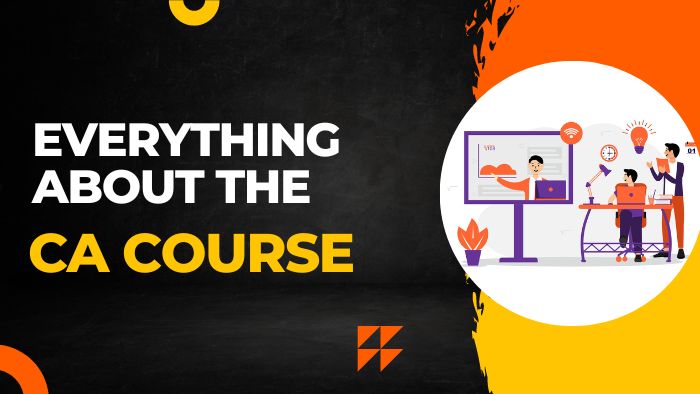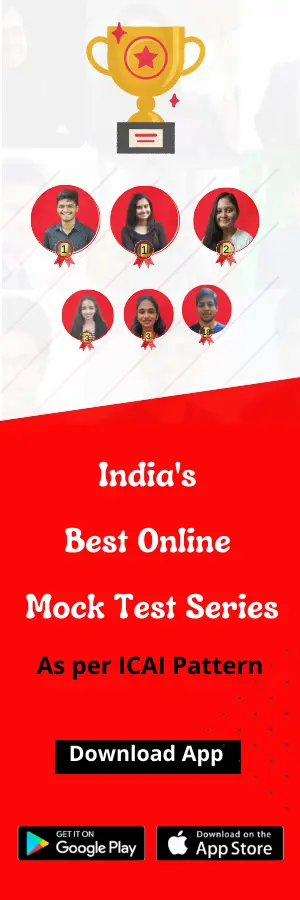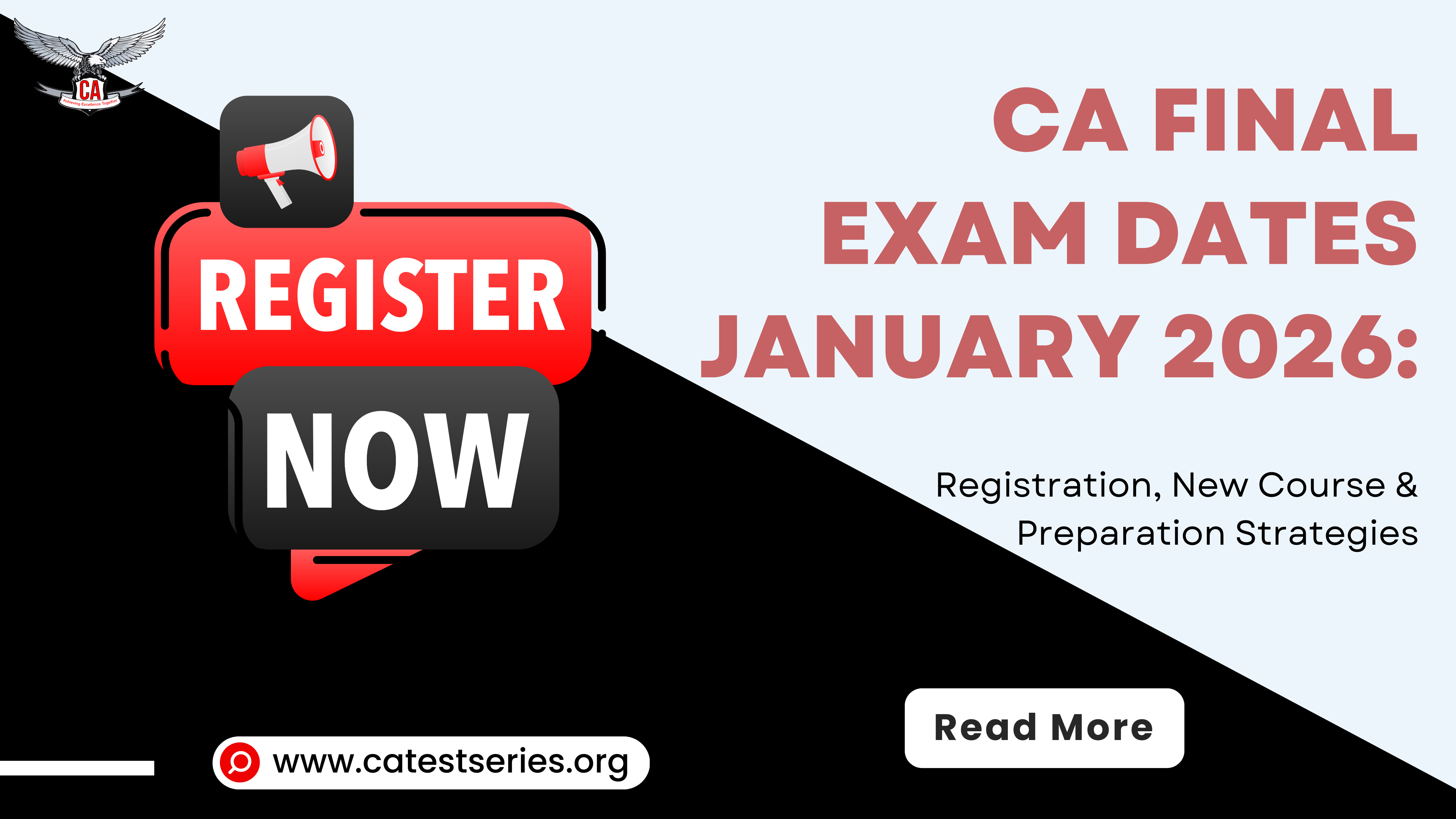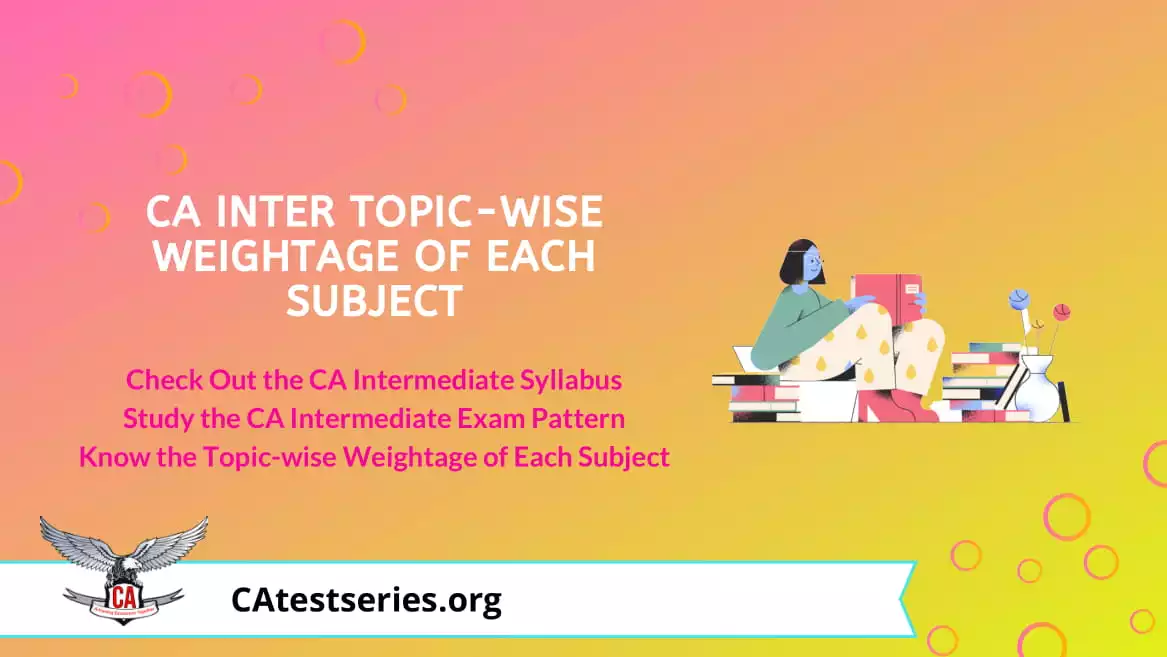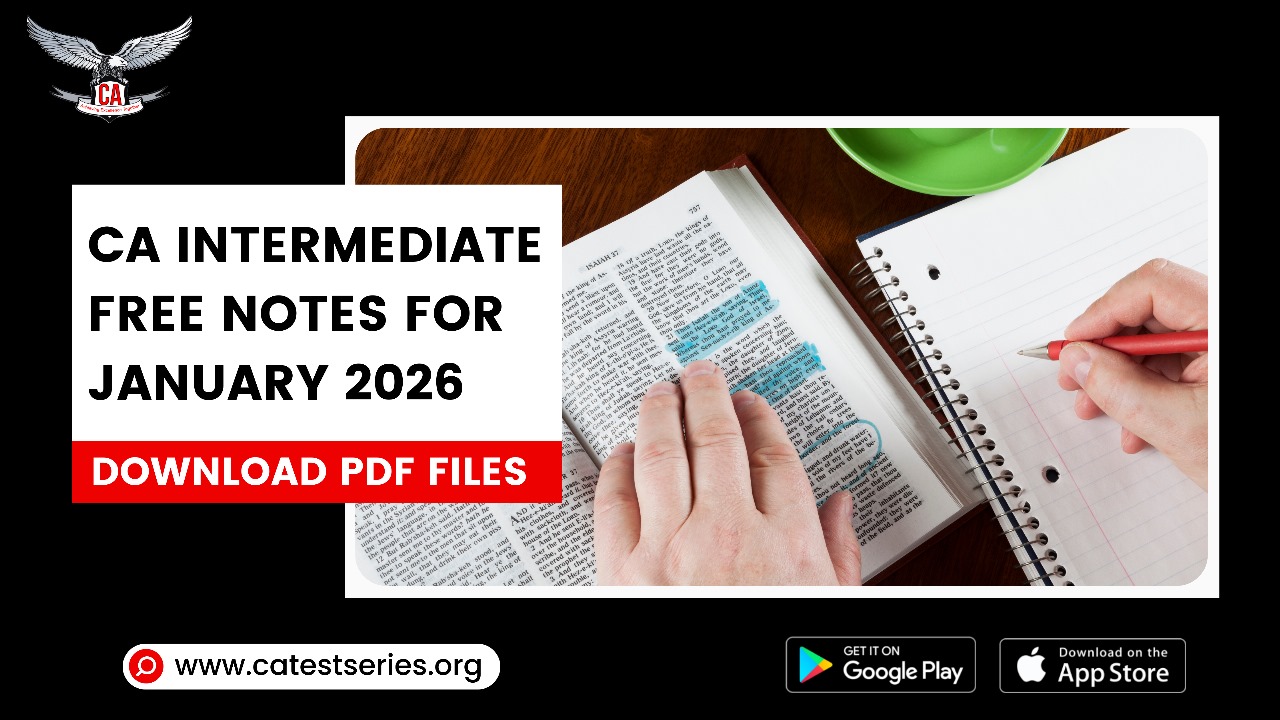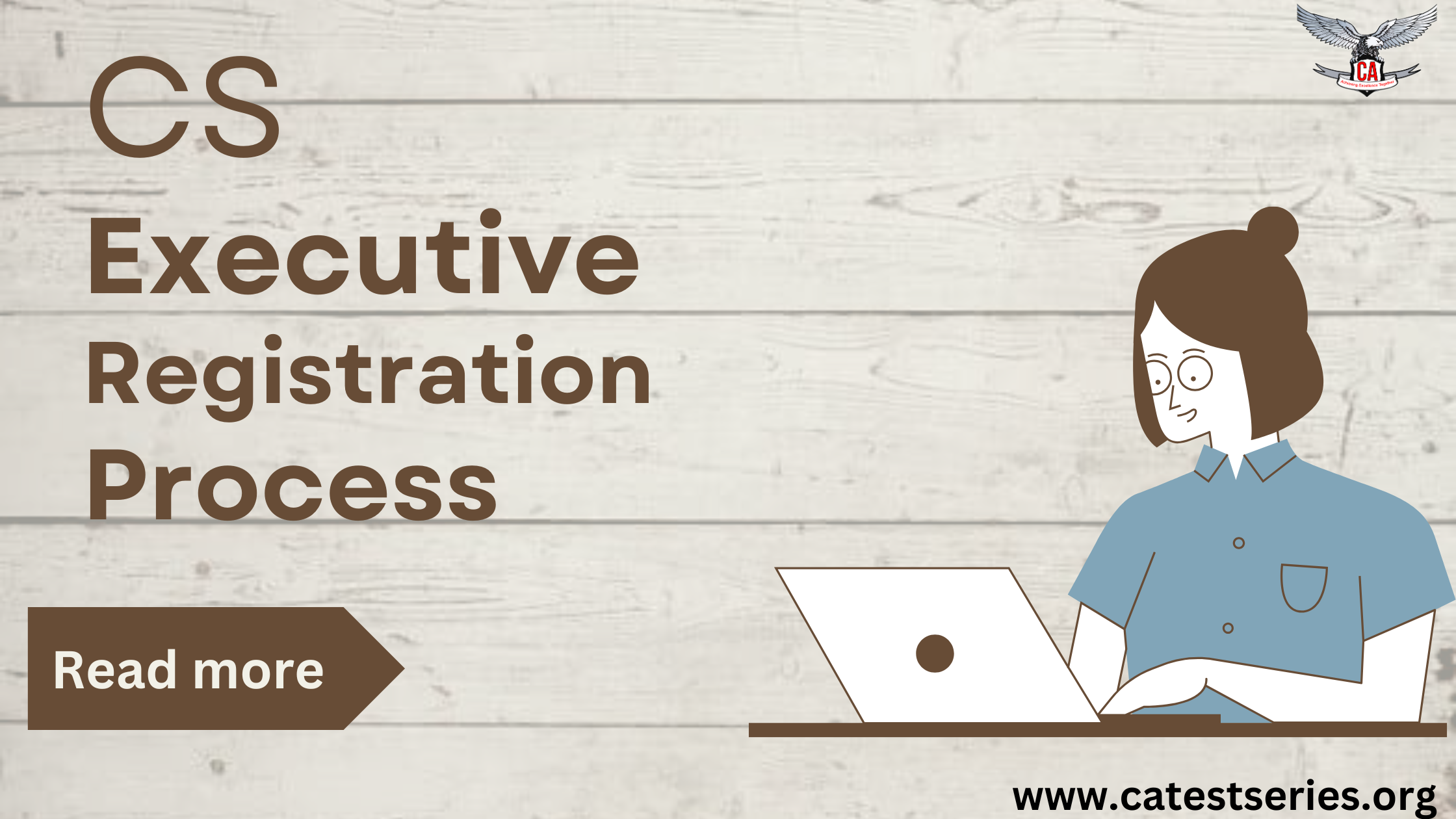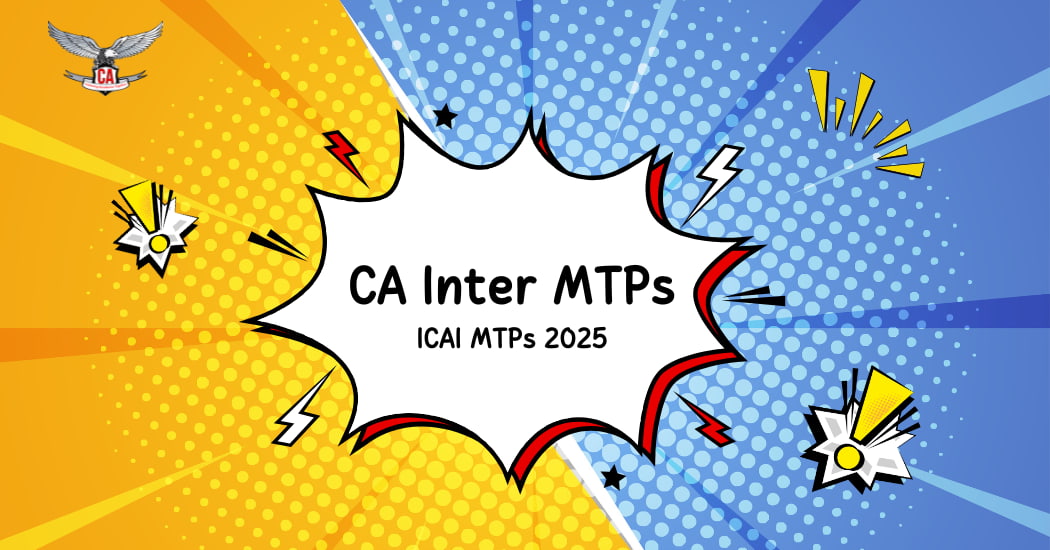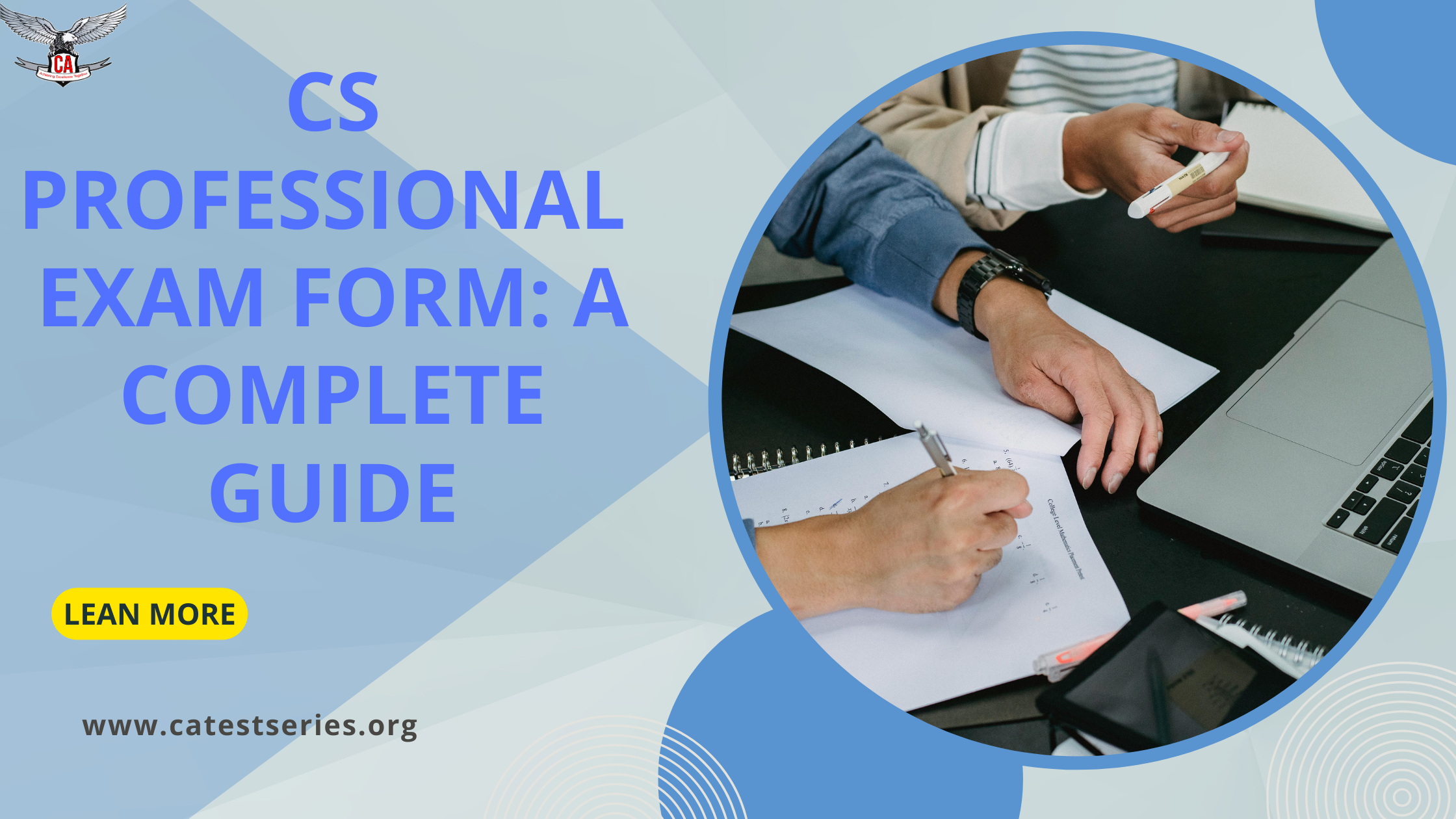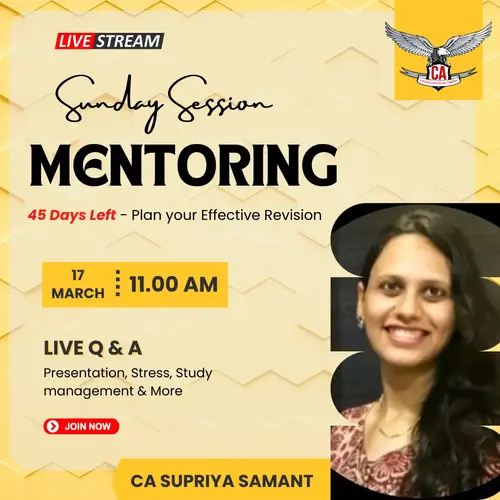CA Course in India : Exams, Fee, Result, Salary, After 12th Everything to know
CA Course in India is one of the most demanding and rewarding courses from the point of view of the fee charged and scope in one of the fastest economies in the world. A chartered accountant plays a vital role in the growing economy. From managing a single rupee to investing trillions, you need helpful advice from a chartered accountant. Growing FinTechs in India also allows chartered accountants to explore new areas.
The chartered accountancy course is conducted and regulated by the ICAI (Institute of chartered accountants of India), which is set up under an act of the Indian Parliament. ICAI is the only governing body of C.A. Courses in India. ICAI conducts C.A. Exams all over India twice a year. Indian chartered accountants are registering strong footprints in Taxation, the Share market, startups and big corporates. C.A. is one of the courses in India which adapt according to the industry trends and change in legal structure in India very quickly.
Levels of CA
The entire Course of a chartered accountant is divided into various levels. Majorly it consists of 4 levels.
1. CA Foundation – Foundation is the first stage exam in the C.A. course. Students after 12th Class exams can enroll for the C.A. foundation course. It consists of 4 papers covering accounting, fundamental laws, math and economics. Mostly the portion is covered in the 11th and 12th class syllabus except for law. This exam judges the fundamentals; after clearing the foundation, students can enter C.A. Intermediate only.
C.A. Foundation is an attempt for students who are joining this Course after completing their graduation. Those students can directly take admission into C.A. Intermediate.
Exam Format | Descriptive + Objective (MCQs) |
Descriptive Papers | Accounts and Law |
Objective Papers | Math and Economics |
Duration | 180 minutes each exam |
Number of Papers | 4 |
Marks | 100 |
Negative marking | 1/4 |
Timing | June and December each year |
Eligibility | Pass 12th in commerce with atleast 50% marks or 55% for 12th in Science field |
Pass Criteria for CA Foundation Exam
The student has to score at least 40 in each Subject and 50% in aggregate. C.A. Foundation has 4 exams of 100 each, so out of a total of 400, a student has to score a minimum of 200 marks to clear the C.A. Foundation level.
2. CA Intermediate
Once students clear C.A. Foundation or take entry after graduation, they have to prepare for the C.A. Intermediate, which consists of 8 subjects divided into 2 groups of 4 subjects each.
Group 1 | Accounts |
| Corporate and other Law |
| Cost and management accounting |
| Taxation (Income tax and GST) |
Group 2 | Advanced Accounts |
| Audit and Assurance |
| Enterprise information system and Strategic management (EIS-SM) |
| Financial Management and Economics for Finance (FM-ECO) |
Students can choose to attempt one of the two groups or both groups in one attempt. ICAI will give Rank to only those students who attempt both groups in a Single attempt.
Exam Format | Descriptive + Objective (MCQs) |
Descriptive Papers | All are descriptive papers (except 20% portion in 4 exams) |
Objective Papers | 20% of these 4 subjects are objective (law, Taxation, Audit and EIS-SM) |
Duration | 180 minutes each exam |
Number of Papers | 8 |
Marks | 100 |
Timing | May and November each year |
Paper Division | Total 6 questions
Question 1 is compulsory and attempt any 4 from rest of the 5 questions |
Eligibility | Pass Foundation exam or Direct entry student |
3. Articleship Training
After clearing anyone group or both groups, a student can start the training period of 3 years, which is mandatory before appearing for the C.A. Final Exams. In this training part, a student must register as a Member of ICAI. This training includes 4 types of training, among which one is optional, and the others are compulsory.
ICITSS Training | 15 days – 15 days |
AICITSS Training | 15 days – 15 days |
Articleship Training | 3 years |
Industrial Training (Optional) | 9 to 12 months |
ICITSS Training - This training aims to work on 2 essential skills required in chartered accountants, namely information training, which aims to develop an understanding of computer fundamentals, M.S. Word, Excel, spreadsheets, accounting software and orientation course which focuses on soft skills, communication, leadership skills, ethics and professional values. This training is compulsory for candidates who want to appear for C.A. Final Course. ICITSS training is conducted in the branches of ICAI across India.
AICITSS Training - This is the extension of the above training, which aims to develop advanced skills in database management, accounting software, ERP software and, similarly, an advanced level of soft skills and negotiation skills, enhancing the employability skills the candidate. The training programme encourages students to enhance their ability to work with others, think strategically, and function effectively in the workplace. A certificate will be awarded to the students for this training.
Articleship Training – This is a significant time taking the C.A. Course. The aim is to introduce the candidate to real-world experience and practical knowledge of taxation systems, accounting systems etc. C.A. Students must register with a registered member of the Institute of chartered accountants of India. Students have to attempt various audit assignments and various professional services. During this training, students will also receive a stipend from their principal, which usually ranges from around 2000 – 8000 per month. The student also has to follow various guidelines of ICAI regarding leaves, working hours, attendance etc.
Industrial Training (optional) – This training aims to expose the students to the industrial environment. This training is helpful for candidates aims to make their career in corporates as it primarily focuses on problem-solving and financial activities at the industry level. The student has to register for this training through the ICAI Student Service portal under form 104.
4. CA Final
This is the last stage of becoming a chartered accountant. This level test the advanced and experienced knowledge of various fields like accounting, capital markets, laws, Taxation etc. The student has to appear for 8 subjects divided into 2 groups of 4 subjects each
Group 1 | Financial Reporting (FR) |
| Advanced Financial Management (AFM) |
| Advanced Auditing and Professional Ethics |
|
|
Group 2 | integrated Business Solution (Multi-disciplinary case study with Strategic management ) |
| Direct and International Taxation |
| Indirect Tax Laws |
|
|
The two groups can be attempted separately by students, or they can attempt both simultaneously. Only those students will receive ranks from ICAI who attempt both groups individually.
Exam Format | Descriptive + Objective (MCQs) |
Descriptive Papers | All are descriptive papers (except 20% portion in 4 exams) |
Objective Papers | 20% of these 4 subjects are objective (Audit, law, Direct Tax and Indirect Tax) |
Duration | 180 minutes each exam |
Number of Papers | 8 |
Marks | 100 |
Timing | May and November each year |
Paper Division | Total 6 questions
Question 1 is compulsory and attempt any 4 from rest of the 5 questions |
Eligibility | CA Inter both groups cleared + 2.5 years practical training + ICITSS + AICITSS Training |
Pass criteria for CA Intermediate and CA Final
The passing criteria of the C.A. Inter and C.A. Final are unique; a student must score at least 40% in individual subjects and 50% in aggregate in all the papers.
If any student fails to meet the above criteria but gains more than 60+ marks, they can claim the exemption in the same paper, which can be carried forward to the subsequent 3 attempts. If any candidate cannot clear all the papers, they can claim the exemption and appear for the rest of the exams.
CA Course Duration in India
The duration of the C.A. Course depends on each candidate in how many attempts they make to clear the exams. Although if the candidate clears the exams at once, then a candidate who joins the Course after the 12th can complete the chartered accountancy in 5 years, and the candidate, through direct entry, can complete it in 4.5 years. The breakdown of the entire duration is given below.
CA Foundation | 6 months |
CA Intermediate | 10 months |
Articleship | 3 years |
CA Final | 8 months |
The above duration is the further breakdown as CA Foundation 6 months, including a 4-month study and 1.5 to 2 months result wait before registering into C.A. Inter. CA Inter 10 months include 8 month study period and a 1.5 To 2-month result wait. C.A. Final includes 6 month study period and a 1.5 to 2-month result wait.
Students joining the Course through direct entry can ignore the C.A. Foundation period
Eligibility and process for CA Course in India
CA Foundation | Passed 12th from a recognized board of studies in India |
If commerce stream then 50% Marks | |
Non-commerce then 55% Marks | |
CA Intermediate | CA Foundation passed (other than direct entry) |
Graduation commerce stream then 55% | |
Graduation Non-Commerce then 60% | |
Articleship | Complete one of the two groups of CA Intermediate |
Undergone ICITSS training | |
For direct entry – Articleship starts with the inter registration | |
CA Final | Cleared both groups of CA Intermediate |
2.5 years of Practical training |
Documents required for registration under CA Course
CA Foundation | Nationality documentation, such as an Aadhaar card, a voter ID, or a passport |
A mark sheet from the 12th grade (to prove eligibility) | |
A mark sheet and completion certificate from class 10 (to prove your age) | |
Latest passport-size photos | |
CA Intermediate | CA Foundation mark sheet or Graduation Marksheet |
Articleship | CA Intermediate Marksheet |
An application for the articleship | |
A copy of the ICITSS (Orientation and IT Training) certificate of completion. | |
CA Final | A copy of the CA Intermediate mark reports is required for CA Final. |
A certificate of completion for the articleship | |
A certified copy of Advanced ITT completion | |
A copy of the Advanced ICITSS certificate of completion |
Syllabus of CA Foundation, Intermediate and Final
The syllabus of the Course is very vast. It emphasizes mainly the application of accounting, fundamental principles of the various applicable laws, critical analysis of the financial statements, financial decision-making, applicable standards of auditing, legal frameworks governing the entities etc.
Subjects | Syllabus | Best Books |
Accounting | Accounting policies, cash book, trail balance, rectification of errors, bank reconciliation statement, bills of exchange, consignment, final accounts of sole proprietor, NPO, Partnership etc | ICAI Material
or
SK Aggarwal |
Business Laws | Indian Contract Act, Sale of goods act, companies act, Indian Partnership act, LLP Act, Communication, vocab, article writing, report writing, resume writing, letter writing etc | ICAI Material
or
Manmeet Kaur |
Quantitative Aptitude | Ratio, equation, time value of money, sets, function, calculus, directions, number series, seating arrangements, blood relations, probability, index numbers few topics of stats etc | ICAI Material
or
kailash Thakur |
Business Economics | Nature and scope of business economics, theory of demand and supply, theory of production and cost, price determination in different markets, business cyces, business environment, business organizations, government policies for business growth | ICAI Material
or
Ritu Gupta |
All the candidates appearing for the C.A. Exams must be familiar with the applicable syllabus for effective planning of the ICAI exams and complete the revision of the entire syllabus on time. Students must carefully observe the weightage allotted to each topic so allot accurate time to each part of the syllabus.
Subjects | Syllabus | Best Books |
Advanced Accounting | Accounting standards, Cash flow statement, Pre-post incorporation, Bonus and right issue, redemption of preference shares and debentures, Investment accounting, insurance claim, hire purchase, Branch accounting, incomplete records, Departmental accounting | ICAI Material
or
DG Sharma |
Corporate and other law | Companies act 2013, Indian contract act 1872, negotiable instrument act 1881, general clauses act 1897, Interpretation of statutes | ICAI Material
or
Munish Bhandhari |
Cost and Management Accounting | Material cost, labour cost, overhead, activity based costing, cost sheet, cost accounting system, unit & batch costing, job & contract costing, process & operation costing, service costing, join & by product costing, standard, marginal and budgetary costing | ICAI Material
or
Ashish Kalra |
Taxation | Basic tax calculation, residential status, heads of income, aggregation of income, deductions, advance tax, filing return of income, supply under gst, charge of gst, exemption from gst, time & value of supply, ITC, registration, tax invoice, payment of tax and returns | ICAI Material
or
MK Gupta |
Audit and Code of Ethics | Nature , objective and scope of audit, audit documentation & evidences, risk assessment and internal controls, audit sampling, analytical procedures, fraud and responsibilities of auditor, audit of items of FS, company audit, audit report, audit of banks and audit of different types of entities etc | ICAI Material
or
Surbhi bansal |
Financial management and Strategic management | Automated business process, financial and accounting system, information system and its components, e-commerce m-commerce and emerging technologies, core banking system, intro to strategic management, dynamics of competitive strategy, strategic management process etc | ICAI Material
or
Swapnil Patni |
FM-ECO | Scope and objectives of FM, types of financing, Ratio analysis, cost of capital, capital structure, leverages, investment decisions, capital budgeting, dividend decision, working capital management, determination of national income, public finance, money market, international trade | ICAI Material
or
Sanjay Saraf |
Students can crack the C.A. final exams with a solid strategy. Check the entire syllabus carefully and make a proper study plan to revise each part at least twice before the exams.
Subjects | Syllabus | Best Books |
Financial Reporting | Ind AS 1, 34, 7, 115, 8, 10, 113, 20, 102, 101, 2, 16, 116, 23, 36, 38, 40, 105, 41, 19, 37, 24, 33, 108, Financial Instrument, business combination and restructuring, Consolidation, integrated Reporting, CSR. | ICAI Material
or
DS Rawat |
Advanced Financial Management | Financial Policy, Risk Management, Security Analysis, Security Valuation, Portfolio management, Securitization, Mutual Fund, Derivatives, Forex, International FM, Interest rate risk management, corporate valuation, Merger acquitions, startup finance | ICAI Material
or
KM Bansal |
Advanced Audit & Professional Ethics | Auditing Standards, Audit planning, Risk assessment and internal controls, company audit, audit report, Audit committee, Audit of consolidated FS, Audit of Banks, Audit of Insurance companies, Audit of NBFCs, Audit of PSUs, Internal audit, due diligence, Professional ethics etc | ICAI Material
or
Pankaj Garg |
Integrated Business Solution (Multi-disciplinary case study with Strategic management ) | Modern business environment, lean system & innovation, cost management techniques, decision making, pricing decision, divisional transfer pricing, budgetary controls, standard costing, PE etc | ICAI Material
or
Sankalp Kanstiya |
Direct tax laws and International taxation | Basic concepts, heads of income, set off and carry forward, deductions, assessment of various entities, tax planning, deductions, income tax authorities, assessment procedure, dispute resolution, transfer pricing etc | ICAI Material
or
Bangar |
Indirect Tax laws | Supply under gst, charge of gst, exemption from GST, place of supply, time of supply, value of supply, ITC, Registration, Tax invoice, E-way bill, payment of taxes, job work, types of duties, valuation under customs, duty drawback, refund, warehousing etc | ICAI Material
or
Bangar |
CA Course Registration Fee Structure
The fee structure of the C.A. course is different for each Course, including the cost of study material provided by ICAI. Check the fee for each level of the C.A. Course.
CA Foundation | Rs 10,900 |
CA Intermediate | Single Group – Rs 28,200 |
| Both Groups – Rs 33,400 |
| Direct Entry Students – Rs 33,600 |
Articleship | Rs 2,000 |
CA Final | Rs 39,800 |
The fee structure is different for foreigners; check fees for students having foreign nationality.
CA Foundation | $ 1065 |
CA Intermediate | Single Group – $925 |
| Both Groups – $1500 |
| Direct Entry Students – $1500 |
CA Final | $1550 |
These are the official registration fees for the Course. In addition to these charges, students must bear coaching and other misc expenses.
Salary of CA in India
Salaries of chartered accountants in India depend on various factors such as domain field, expertise, city, job roles, industry etc. However, its highly probable to get an excellent job compared to other professions for a chartered accountant. Firms offer a salary package of around Rs 550,000 to 750,000 for a freshly quailed chartered accountant with little to no experience. This package increased with time and expertise.
Chartered accountants are getting good packages in metro cities from big firms like EY, Deloitte, PWC etc., compared to working in smaller firms. Individuals should consider other factors also along with salary package like job satisfaction, workplace environment, growth etc. Chartered accountants with other qualifications like MBA, ACCA, CPA, C.S. or others can qualify for a salary package of around Rs 20,00,000 to 85,00,000.
Type | Experience | Salary (P.A) |
Big 4 Firms | 0-6 Yrs of Experience | Rs 8 to 11.50 Lac |
Mid-Size Firms | 0-9 Yrs of Experience | Rs 5.5 to 7 lac |
Banks | 0-5 Yrs of Experience | Rs 4.5 to 7.5 lac |
IT Firms | 0-7 yrs of Experience | 8.5 to 11 Lac |
CA in Self Practice | 0-12 years of Experience | 8 to 15 Lac |
The top skills demanded for a good job are accounting, Taxation, auditing and finance. The highest salary that a chartered accountant can earn is Rs 2,15,00,000 or more, depending on the network, negotiation skills and various other factors. Job placement also depends on the academic performance of the candidates. Rank holders got more priority in comparison to the others.
The salary of a chartered accountant in a foreign country ranges from around $35000 to $ 50000 for a Fresher and More than $ 105,000 for an experienced chartered accountant. In some countries like the UK, Ireland salary of a chartered accountant ranges around $160,000.
Job Roles for a Chartered Accountant in India
Due to the expertise in the field of finance and Taxation, various job roles are available for a chartered accountant like
1. Investment Banker – Here, Activities like merger acquisition, valuation of firms, financial advisory services, and IPOs are carried out.
2. Forensic Auditor – Here, Investigations of accounting frauds, conducting forensic audits and providing advisory in legal disputes are tackled.
3. Management Consultant – Here, works like process optimization to save cost and steam line the working, financial restructuring etc., are carried out.
4. Risk Compliance – Here, chartered accountants ensure that the firm complies with all the legal formalities, internal processes, etc.
5. Corporate Finance – Here, various financial activities like capital budgets, fundraising, financial modelling, and financial planning are managed.
& More
Exam Form for CA Final Inter and Foundation Exams
Before appearing for the C.A. exams, students have to fill out an exam form in addition to the admission taken in the Course. Exam forms are mandatory for each candidate interested in appearing for the exams. Exam forms are available on the ICAI official site generally 3 months before the exams. Students also have to pay certain charges for the exam depending on the number of papers they appear for. Based on the exam form, only an admit card of the candidate will be generated.
To fill out the exam form for C.A. Final Inter and Foundation :
1. First visit the ICAI Website Student Service Portal (SSP) –
(https://eservices.icai.org/EForms/loginAction.do?subAction=ViewLoginPage&formId=55999&orgId=1666)
2. Fill all the fields like contact details, personal information, preferred city for exam centre etc., available in the exam form with accuracy.
3. Choose the Course and subjects and mention information regarding exempt subjects also, if any
3. Click on Apply
4. Make online Payment and submit the form
Exam form charges for all the levels of CA Course are listed below
Exam Level | Exam Form Fee (Indians) | Exam Form Fee (Overseas) |
CA Foundation | Rs 1500 | $ 325 |
CA Intermediate | Single Group – Rs 1500 | Single Group – $ 325 |
Both Groups – Rs 3400 | Both Groups – $ 500 | |
CA Final | Single Group – Rs 1800 | Single Group – $ 325 |
Both Groups – Rs 3300 | Both Groups – $550 |
Once the entire process of the examination form is completed, students must wait for 1.5 months for the admit card in which their centre, exam timing, which is 2.00 PM to 5.00 PM and Roll number will be mentioned along with examination guidelines. Students must download the admit card by visiting the same website panel on the ICAI SSP portal.
From time to time, you must check ICAI guidelines or updates about the form filling or changes related to the entire process.
CA Final Intermediate and Foundation ICAI Study material
An appropriate study resource is essential to crack this challenging C.A. Final Inter and Foundation exam. Choosing the suitable study material is the first step. None of the study material is best except the one provided by the Institute of chartered accountants of India to all the students. C.A. Final Inter Foundation ICAI Study material is comprehensive material which covers every relevant topic with amendments for the exams. 95% of materials available in the market are copied from ICAI material only. The syllabus is well presented in sub-topics and appropriate category-wise; this material equips with all the contents required for professional knowledge and skills to crack the C.A. Exams.
The subject matter expert carefully creates C.A. Final Inter and Foundation ICAI Study material according to the Course requirement. The entire study material comes with all the relevant applicable legal amendments so that students can use this material without any difficulty. This study material includes each Subjects textbooks, revision test papers, past exam papers and ICAI mock test papers. Sufficient practical examples and case studies are included in the material for students practice so that a student can judge the type of questions that can be asked in the exams. These practice problems help to develop familiarity with exam patterns.
CA Final Inter and Foundation Revision Test Papers (RTPs) are also one of the best sources of knowledge for the students, which include all the amendments applicable in the same attempt and 1-2 problems from each topic. The best part about the RTPs is that it covers amended questions separately and provides comprehensive suggested answers which properly guide the students about various aspects. RTP picks specific questions from the entire Course, and it takes only 3-4 hours to attempt one RTP of a subject.
CA Final | ICAI Study Material |
Financial Reporting | |
Advanced Financial Management | |
Adv Audit & Professional Ethics | |
Integrated Business Solution (Multi-disciplinary case study with Strategic management ) | |
Direct tax laws and International taxation | |
Indirect tax laws |
ICAI Study Material is a comprehensive guide for students in understanding complex concepts, practising various problems and case studies and understanding the key points at a glance. Students should target to revise the entire study material of ICAI at least 2 times before the exams to score good marks. No question comes out of the scope of this ICAI study material in the exams. This study material helps plan the full coverage and revision for the exams.
Scope of CA Course in India & How to become CA in India
This CA Course prepares a candidate to specialize in accounting, taxation, financial management, auditing and business advisory services. C.A. designation is recognized and respected globally for its expertise and witnesses a vital role in improving and maintaining the financial health of organizations.
Chartered accountants in India provide various services like conducting audits of various entities, tax planning, business advisors, Financial data analytics, preparing financial statements and financial strategies etc. They provide critical insights and suggestions to help financial growth and sustainability as reliable advisors to organizations, people, and government departments.
A chartered accountant must undergo an exhaustive training process and one of the country most difficult exams to handle crucial financial matters intelligently. ICAI has also set up a professional code of ethics to maintain a high level of professional integrity, objectivity, confidentiality and professional competence among the ICAI.
Candidate can achieve their dream of working in MNCs through this Course. Government departments and public sector undertakings also hire Chartered accountants for various tasks. Chartered Accountants can also run their practices and provide services like tax filing, auditing, financial management etc., to clients independently or through firms.
In conclusion, a chartered accountant is a highly qualified professional who has completed the training process and exams and obtained the required certifications. C.A.s are one of the most trusted and reliable partners in the growth and success of business entities or individuals in all financial matters.
Top Course along with CA Course to boost the career
Though the C.A. course is sufficient for a strong career in finance and Taxation, some related courses can further enhance specialization in specific areas. Courses are
- CFA – Chartered Financial Analyst is a globally recognized qualification in financial management. The combination of C.A. and CFA opens the door to a thriving career in investment banking in India and overseas.
- CPA – Certified public accountant is widely recognized and qualified in many countries. Candidates interested in working overseas or in MNCs in India can obtain CPA qualifications.
- ACCA – ACCA offers expertise in the field of accounting across the world. Along with C.A., ACCA offers a broader scope in International accounting standards and practices.
- CIMA – It equips the profession with cost management expertise, decision making and business performance evaluation. Both qualifications offer managerial positions in various big corporates
- FRM – Candidates are interested in capital markets FRM, along with C.A., offers great jobs in credit risk, risk modelling, and market risk making you a perfect candidate for financial institutions and banks.

